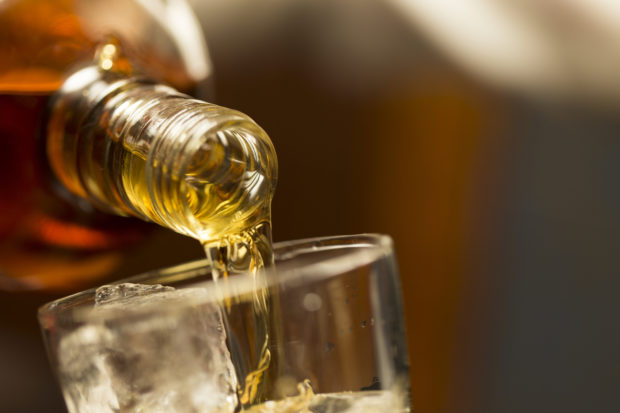
Japanese research has found that even light alcohol consumption could increase the risk of cancer. Image: Jonathan Austin Daniels/istock via AFP Relaxnews
New Japanese research has found that even light to moderate alcohol consumption could increase an individual’s risk of cancer.
Carried out by researchers at the University of Tokyo and Kanto Rosai Hospital, Japan, and Harvard T.H. Chan School of Public Health, United States, the new study looked at data gathered from 33 general hospitals throughout Japan which included information on a total of 63,232 patients with cancer and 63,232 controls matched for sex, age, hospital admission date and admitting hospital.
The participants were asked to report the average daily amount of standardized alcohol units they consumed and how long they had been drinking for.
In the study, one standardized drink was equivalent to one 180-milliliter cup (6 ounces) of Japanese sake, one 500-milliliter bottle (17 ounces) of beer, one 180-milliliter glass (6 ounces) of wine or one 60-milliliter cup (2 ounces) of whiskey.
The findings, published online in Cancer, a peer-reviewed journal of the American Cancer Society, showed that participants who had the lowest overall cancer risk also drank zero alcohol.
As alcohol consumption increased, so did cancer risk, with the team finding that even a light level of drinking at a 10-drink-year point, which is equivalent to one drink per day for 10 years or two drinks per day for five years, would increase overall cancer risk by 5%.
Those who drank two or less drinks per day had an increased cancer risk regardless of how long they had been drinking alcohol.
The increased risk was also found in both men and women and regardless of other drinking/smoking behaviors and occupational class. The risk of alcohol-related cancer also affected relatively common sites, including the colorectum, stomach, breast, prostate and esophagus.
Although the researchers note that some studies have linked limited alcohol consumption to lower risks of certain types of cancer, even light to moderate consumption has previously been associated with a higher risk of cancer overall.
“In Japan, the primary cause of death is cancer,” said study author Dr. Masayoshi Zaitsu, M.D., Ph.D. “Given the current burden of overall cancer incidence, we should further encourage promoting public education about alcohol-related cancer risk.” IB/RGA
RELATED STORIES:
White Americans far likelier to receive HIV prevention drug than minorities
Smartphone use has led to a steep rise in head, neck injuries over 20 years
Can medical cannabis reduce headaches by 50%?